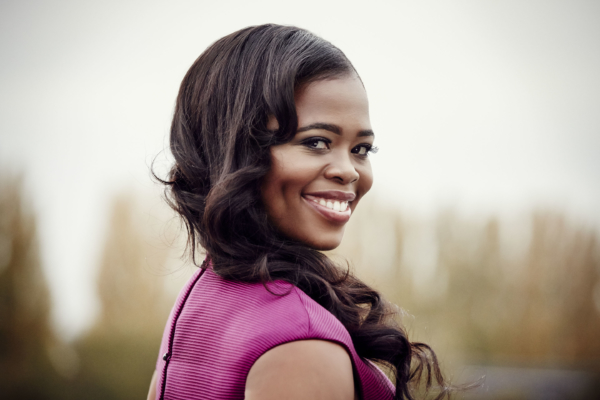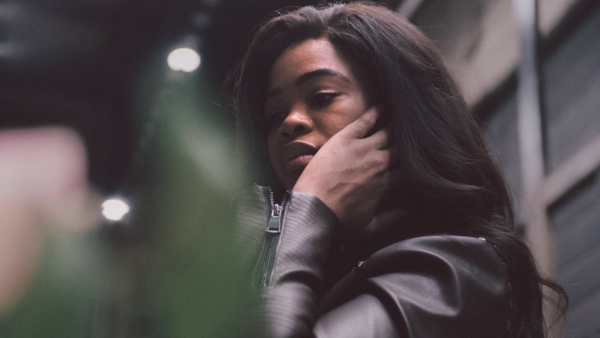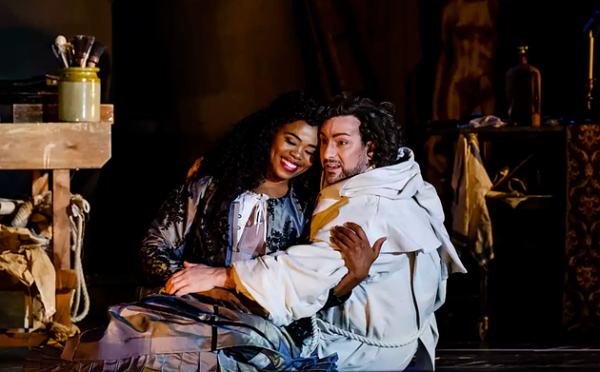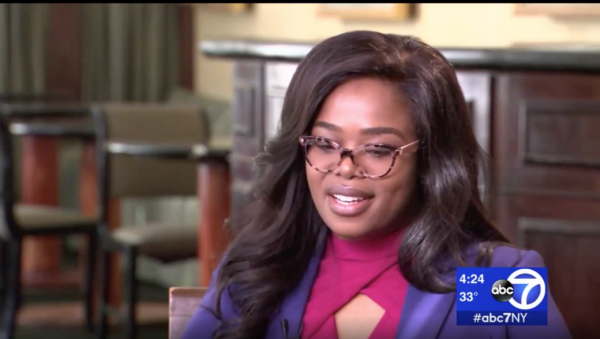Carnegie Hall is calling for Africa’s most acclaimed opera singer

Click here to watch the CNN’s video report.
Comments Off on Carnegie Hall is calling for Africa’s most acclaimed opera singer
Click here to watch the CNN’s video report.
Comments Off on Carnegie Hall is calling for Africa’s most acclaimed opera singer
One of the most costly but less acknowledged consequences of apartheid was the decades-long exclusion of South Africa from competing on the international arena, in sport or through various forms of creative expression.
Due to this racial segregation, several generations of excellent sports people and artists from various disciplines – musicians, actors, dancers and other creatives – never got to showcase their talents to the world.
Apart from being cruelly robbed of an opportunity to make a better living from lucrative deals overseas, they also never got the opportunity to write their country’s name in the history books, and themselves into the international Hall of Fame against the best that the world had to offer.
As a result, the debate over whether Jomo Sono was better than Maradona will never truly be settled because they simply never got to stand toe to toe and compete on the same stage, representing their respective countries.
Those few South Africans who did manage to scale international heights in their chosen fields in any meaningful way only did so as individuals, at great personal cost, having gone into exile.
Miriam Makeba, Hugh Masekela, Letta Mbulu, Caiphus Semenya and Abdullah Ibrahim were just some of those who paid the ultimate price for this cultural boycott.
They had to turn their backs on their country of birth due to the repressive apartheid laws.
Here’s an interesting little fact: there are many more South Africans who sing choral music than those who play football. But due to repression, members of thousands of choirs across the country never got a chance to dazzle the world with their angelic voices.
But even with the international boycott long buried – our national sporting sides resumed competition in 1992 – two years before the dawn of democracy, to this day, only a tiny minority of South Africans can claim to have participated in an international choral music competition.
Thankfully, South Africa will be hosting the World Choir Games, from July 4 to 14.
Considered the Olympic Games of Choirs, it will be the first time the event will be hosted in the southern hemisphere and on the African continent.
It is quite significant that in the centenary year of Nelson Mandela’s birth, South Africa is hosting this profoundly important cultural event, which will attract no fewer than 30000 visitors and 300 choirs to the City of Tshwane and Gauteng in general.
The event will be held under the theme “Various Voices – One Harmony.” It will resemble a kaleidoscope of colours, as participants of diverse races and cultural backgrounds will be united under one umbrella – yet another realisation of Madiba’s dream. We will also stage concerts in honour and remembrance of Madiba.
Previous hosts of the World Choir Games include Austria, Korea, Germany, China and the US.
Entries for this year’s competition have come from as far afield as the US, Jamaica, Switzerland, Lithuania, Greece, China and Singapore.
It all has the makings of a colourful, vibrant coming together of various cultures to create a true smorgasbord of Madiba’s Rainbow Nation.
For us who know the harsh reality of apartheid segregation first-hand, events such as the World Choir Games hold special significance because there was a time when we could not even dream of living as a free people – let alone being entrusted with the responsibility of hosting international visitors.
As the African Cultural Development Organisation the key driving factor behind our decision to bid for the World Choir Games was that, despite the immense popularity of choral music across the land, a lot of our choirs had never participated on the world stage. This is purely because they were disadvantaged economically.
An event of the stature and magnitude of the World Choir Games presents an opportunity not only for South Africa to once again display its world-renowned hospitality and ability to successfully host the world, but also for Africans to unite through music.
The event will also offer workshops, seminars and open rehearsal sessions. During these workshops, choirs, conductors and individuals will be introduced to international choral literature, singing styles and performance practices.
The impact that such exposure will have on the participants, especially the young ones, will be profound. For many, it will be a life-long highlight.
During the 3rd World Choir Games in Bremen, Germany, some 14 years ago, a girl from the small town of Piet Retief took the world by storm.
Her name was Pretty Yende. This lovely soprano has since won multiple awards and performed leading roles internationally at various magnificent opera houses, including La Scala and the Metropolitan Opera in Italy and New York City.
Another success story that is proudly associated with the World Choir Games, is the runaway success of the Stellenbosch University Choir, who have won the competition four times and are the reigning champions.
So, it’s an immensely exciting time for South Africa, Gauteng, the City of Tshwane and the African child.
Less than two months from now, in the beautiful and liberated land of Nelson Mandela, we have an opportunity to unearth another Pretty Yende. Or 10. Or another Stellenbosch University Choir we can hardly wait to see.
Ali Mpofu is founder of the African Cultural Development Organisation and head of the local organising committee of the World Choir Games.
Comments Off on IOL Choir Games: A contest set to unearth talent
When the soprano Pretty Yende was training in the young artist academy at the Teatro alla Scala in Milan, coaches suggested she study the title role of Donizetti’s “Lucia di Lammermoor.”
“I thought they were crazy,” Ms. Yende said recently.
She had some good reasons: Her young voice was lusher and more velvety than most Lucias; the part’s florid coloratura was difficult for her; her upper range was insecure. “I could barely sing a high C,” she recalled.
But it was more than vocal reticence that gave Ms. Yende pause.
“I thought it was an impossible role for me,” she said during an interview at the Metropolitan Opera, where she sings Lucia through May 10 after triumphing in the part in Paris and Berlin. “I asked my teachers, ‘But who looks like me and sings this repertoire?’ ”
At 33, Ms. Yende has become one of the most accomplished and charismatic coloratura sopranos of her generation. Last season at the Met she appeared in three productions; her recent Met appearance as Adina in Donizetti’s “L’Elisir d’Amore” will be broadcast nationally on PBS on April 29.
She will be the soloist in the Met Orchestra’s concert at Carnegie Hall on June 5, singing Mozart’s “Exsultate, jubilate” and the solo in the finale of Mahler’s Fourth Symphony. Next season she stars in “La Fille du Régiment” and “Les Pêcheurs de Perles.”
But when Ms. Yende was growing up in a Zulu-speaking home in South Africa, the daughter of a businessman and a primary schoolteacher, she was aware of few role models for a black girl who wanted to be an opera singer. As human beings, she explained, we are inspired by the “pictures” of life we see.
“I guess at the time I hadn’t seen so many on the world stage like me,” she said. Singers like Leontyne Price and Kathleen Battle had by then paved the way for black artists, but while growing up, Ms. Yende was essentially unaware of their existence in what seemed to her an almost all-white field.
While she had been a standout vocal soloist at church, she had originally planned on going to college to study accounting. But at 16, she saw a British Airlines commercial that used a few phrases of the gorgeous soprano-mezzo duet from Delibes’s “Lakmé.” She fell instantly in love, and went from music school in Cape Town to that formative training stint in Milan — where the great soprano Mirella Freni strongly advised her to explore the bel canto repertory — and a thriving international career.
It was during Ms. Yende’s performance in Rossini’s “Il Barbiere di Siviglia” early last year that the extent of her gifts was fully obvious. Her singing was sweet (you believed she was a young woman smitten with a charming stranger) yet sassy (she knew she had to wriggle free of her overbearing guardian). Her voice was even throughout its range, and she tossed off dazzling passagework clearly. Her gleaming high notes suggested not a soprano showing off, but young Rosina coming into her own.
It didn’t hurt that she’s plainly beautiful, with an open face and radiant smile. In her culture, she explained, parents give their children names “to follow,” to “bring them luck.” (One of her brothers is named Prosper.)
As a teenager, Ms. Yende dreaded her name. “I didn’t feel I was pretty at all,” she said. But she came around. Her name is “delicate,” she said, with “so many subtleties” — suggestive of “wish and will,” sentiments that still guide her.
She showed up for “Lucia” at the Met this month with clear ideas about the opera and the inner strength of the character, a role closely associated with great divas like Maria Callas and Joan Sutherland. To rescue her family from ruin, Lucia is bullied by her brother into marrying a wealthy lord rather than her beloved Edgardo, who comes from a rival family. Every aspect of Lucia’s being, Ms. Yende said, especially her consuming passion for Edgardo, is thwarted.
Within everyone who is unable to express their inner feelings is a “kind of hidden strength” that they hold onto like “a survival instinct,” Ms. Yende said. Lucia’s desperation culminates in one of the most challenging mad scenes in opera. Forced to marry a man she considers her oppressor, the unhinged Lucia stabs him to death on their wedding night. Ms. Yende sees even this harrowing act as evidence that Lucia “is clinging to a kind of willfulness” that she shows to the world through murder.
You sense Lucia’s tenaciousness coursing through Ms. Yende’s performance of the mad scene on her latest Sony recording, “Dreams”; even in the character’s delirium there is a chilling directness, even defiance, to her singing. And it was fascinating to watch her in the Met’s spartan basement rehearsal room during the first rehearsal for her five-performance run, a revival of Mary Zimmerman’s slightly updated 2007 production.
This was a run-through of Lucia’s first scene, accompanied only by piano. In fluent Italian — Ms. Yende lives in Milan — she discussed fine points of the music with the conductor, Roberto Abbado. But the main business was to go through the blocking with the singers — especially Ms. Yende, who had only seen the production years ago, when it played at La Scala.
At the start of the rehearsal, Sarah Ina Meyers, a stage director, explained Ms. Zimmerman’s concept while emphasizing that the production was designed to be “open to interpretation.” In Lucia’s first scene, she has come to the fountain in a park near her family’s castle, waiting surreptitiously for her lover. She tells her maid, Alisa, that she has seen the ghost of a young woman who was stabbed to death by a jealous lover at this very spot. In Ms. Zimmerman’s staging, a silent dancer appears as the ghost, seen only by the emotionally vulnerable Lucia.
It’s essential, Ms. Meyers said, for Lucia to “keep the fountain alive,” in a dramatic sense, during this scene. Ms. Yende vividly responded to the suggestion. She sang the long, winding phrases of the aria “Regnava nel silenzio,” her sound warm yet bright, both youthful and wracked with premonitions. But she kept glancing nervously at the fountain — represented in the rehearsal room by a few tossed-together chairs and boxes — hovering near it then stepping away, entranced yet fearful.
Later, Lucia moves into the defiantly animated aria “Quando rapito in estasi,” effusively anticipating the joy her lover — her light, her everything — will bring. Ms. Meyers gave Ms. Yende the staging choice of holding hands with Alisa and twirling her around, or just grabbing Alisa’s hand and sending her off spinning by herself.
The second option would make it easier to execute the coloratura roulades during this, well, ecstatic music, but Ms. Yende preferred for the two women to twirl together, like impish schoolgirls.
“I think it will help me release a bit,” she said. From the evidence of her confident singing — with clean runs, shapely phrases and, after all those worries early in her career, effortless notes above high C — she was right.
Ms. Yende’s success hasn’t pushed aside her questions concerning race and opera. For sure, she said, classical music institutions, music schools and universities have much work to do to recruit young artists who have been historically excluded from the art form. On the positive side, though, Ms. Yende said that both opera companies and audiences have mostly embraced colorblind casting.
“I think we are experiencing a big change,” she said. “The world might not see it. But the operatic world is really breaking this wall, and we have to thank the opera houses and casting directors.”
She mentioned that next year the Paris Opera will mount a new production of Verdi’s “La Traviata,” directed by Simon Stone (“Yerma”), for her to sing Violetta for the first time.
“That is something historic,” she said. “A big change is happening.”
Comments Off on ‘I Could Barely Sing a High C’: Pretty Yende Finally Conquers Lucia
Pretty Yende knows how to make an entrance. The first time British audiences heard the South African soprano’s voice it was in the very first notes of Porgy and Bess, singing a gorgeously rich and soulful Summertime in Cape Town Opera’s production, which travelled to Cardiff and London in 2009. A few months earlier I had been given a sneak preview, hearing the same voice give full cry to Gershwin’s lullaby in a muggy rehearsal studio in Cape Town. I met her for the first time after that rehearsal. In ten years, Yende told me matter of factly, the 23-year-old saw herself “singing in the biggest opera houses in the world”.
“I said that?” Yende, now 33, seems momentarily outraged at her chutzpah. She is sitting in a conference room backstage at the Bastille, the hulking 1980s theatre that is the home of the Opéra National de Paris, where she is starring in Terry Gilliam’s production of Berlioz’s Benvenuto Cellini. “I didn’t say that I dreamt it?” She chews it over a bit more. “All I know is that my hopes have always been positive. When I reach some goals they inspire me to go further.”
In the end it took a lot less than ten years for Yende, who last night won the Readers Award at the International Opera Awards in London, to reach the world’s top stages. In 2013 she made another spectacular entrance — though less than seamless — when she jumped in as a replacement in Rossini’s comedy Le Comte Ory for her debut at the Metropolitan Opera in January 2013. Before she’d even sung a note she tripped on a flight of steps and fell flat on her face.
It was a “wake-up call” to her own sense of impending panic. “I felt so nervous and out of place. I’d just learnt the opera in seven days. It was with Juan Diego Flórez. At the Met. So I was in the wrong psychological space. And for me to get the focus . . . it had to be WHAM. The ground.” She picked herself up and opened her mouth. “I could hear everyone’s heartbeat. It was so silent. But I was up, I sang and it was incredible.” Last year she sang an unprecedented three productions at the Met during the spring — Rossini’s Barber of Seville, Gounod’s Roméo et Juliette and (as another emergency substitute) Bellini’s I Puritani — before making her Covent Garden debut in Donizetti’s L’elisir d’amore. “She has everything,” Anna Picard wrote in The Times of her performance.
Yende likes to think spiritually — her tweets, Instagram and Facebook posts often reference her “journey” (sorry, her #PrettyJourney), but it’s an odyssey worth recounting. She grew up, the eldest of four children (her sister Nombulelo is training as an opera singer too), in Piet Retief in Mpumalanga, a remote eastern province of South Africa. She sang in church or on the way to church (a four-mile hike). “Gospel music . . . hymns at home every supper,” Yende remembers. She wasn’t a totally pious teenager — there was also r’n’b, “but the old r’n’b,” she clarifies. However, the turning point was seeing a TV advert for British Airways. Most of us try to forget the Big Tune, aka Delibes’s Flower Duet from Lakmé. It’s fair to say that it changed Yende’s life.
“I just wanted to know what it was. I didn’t know it was humanly possible to sound like that, it really sounded that foreign to me. So when my high school teacher told me about it, that it has a name, it’s called opera and, yes, it’s humanly possible, I said, ‘Teach me how to do that.’ ”
She was lucky. Not super-lucky. Her school didn’t have an orchestra — it didn’t even have a piano — and there wasn’t an opera company for hundreds of miles. However, in 2001, on a mission to broaden access to art forms previously confined to white South Africans, opera had been introduced into music curriculums. The first piece of opera that Yende sang was the Flower Duet, “but in English, because I went to a community school and you couldn’t learn French”.
The first time she sang with an orchestra was at the inter-provincial competition where Yende represented her school and state. “We were booed on stage because we came from ‘the province that can’t sing’. They looked down on us.” Other competitors had even turned up with costumes borrowed from local opera companies, while Yende and her schoolmates just wore their best frocks. “I’d never been as terrified in my life and I decided I would never again be as terrified on stage.”
The next year she won the soprano solo category, which was her passport to music college in Cape Town, more than 1,000 miles away. Her father, a taxi driver (her mother is a teacher), insisted on driving her. “It was 18 hours, I’d never been away from home. We drove the whole night.” On arriving at Cape Town’s South African College of Music she realised how much she had to learn. “I didn’t know my ‘Do’ from my ‘Re’.”
Her headmaster had once pleaded with his top pupil (another first, a girl had never taken that prize) to consider accountancy rather than opera. Her thrifty instincts helped her when she was coming to the end of her studies and plotting her next career moves. In the opera world that meant Europe. “I was seeing most of my colleagues not pursuing their careers internationally and I wondered why — because they had all the tools and the talent. I realised it was financial constraints. I thought, ‘How can I get myself out there without breaking the bank account of all those rich people in South Africa who usually support artists?’ — so I decided that maybe if I entered the big competitions and only asked for one return ticket then I could do almost an entire world audition.” The gamble worked. “It sort of ended up with me winning all of them,” Yende says, in a kind of sorry-not-sorry way. She was the first artist to win the first prize in every category in the Belvedere competition in Vienna and went on to win first prize in Plácido Domingo’s Operalia competition.
Joining the La Scala Academy of young artists and being mentored by the retired soprano Mirella Freni, who had a famously long and carefully nurtured career, protected her from some of the dangerous job offers that came flooding in. “Mostly because of the colour of the skin. They were like, ‘Oh, your voice is too big, what can you sing . . . maybe Aida? No, you’re too young — maybe Porgy and Bess.” Gusts of laughter. “So I’m grateful to Mirella Freni because she advised me the way she made her career.”
That meant focusing, as Yende still does, on the bel-canto repertoire of Rossini, Donizetti and Bellini, requiring utmost technical discipline, pure legato phrasing and plenty of agility. “She said that will teach you about your instrument, teach you about your breath.”
It will be her bedrock when she does move on to bigger repertoire. And yes, Aida is on the list. The trailblazing black American soprano Leontyne Price called it “my warrior part, my heartbeat”. Yende acknowledges the influence. “When you look at opera singers who look like you, of course you aspire to do what they do.” Her first Verdi, however, will be as Violetta in a new Traviata for Paris next year. “I’ve waited for this. Not just because of the vocal line, but because Violetta is a woman, and so different from the girls that I’ve sung.”
After the dismantling of apartheid there was a boom in black operatic talent from South Africa. “It was there all along,” Yende says. “When I look back I realise that there were many people who were much worthier than me, but the opportunity was not given to them. I honour that and carry that with me.”
She is depressed, however, by the lack of support given in South Africa now to encourage wider access. “The country doesn’t acknowledge the arts as much as they could. The government doesn’t realise how much South Africans are contributing to the world of opera.”
On the country’s prospects more generally she is more circumspect. Her uncle was recently murdered in a robbery, which she says has shaken the entire family. “Injustice is always there,” she says, but she focuses on the role that arts can play “where I’m not able to take sides”. On a more positive note she’s also hoping that her school choir could collaborate in a future opera recording. They do at least have a piano now.
Piet Retief is still her home, although she also has a flat in Milan. (She is “happily single”, she adds.) It’s there that most of the band of supporters she calls her “Pretty Army” are based. Her parents may not be opera buffs, but they are still the people whose advice she values most. When she comes back home, what’s the most ordinary thing she likes to do? “Cleaning,” she says, beaming. What? Dusting? Hoovering? Sink unblocking? Enthusiastic nods. “Like I used to do when I was in high school. Just cleaning my home.” At least her latest gong will be kept spotless and shiny on the mantelpiece.
Pretty Yende’s latest album, Dreams, is out now on Sony Classical. She sings in Benvenuto Cellini at the Opéra National de Paris to April 14 (operadeparis.fr)
Comments Off on The Times – Pretty Yende: the soprano who went from Mpumalanga to the Met
It’s a spectacular cinematic and colourful universe – created by Monty Python co-founder Terry Gilliam.
The iconic director unleashed his extraordinary imagination on Berlioz’ masterpiece “Benvenuto Cellini” at the Opera Bastille in Paris.
“I don’t do operas I try to put on shows, this is what I try to do.” explains Terry Gilliam. “I want it really like it was in the 18th century, it was for the people, it was raw, it was wild and fantastic.”
“The music is so monumental. It’s so big, every which direction. It’s heights of beauty and delicacy and the pits of vulgarity and it is tragedy, there is adventure. It is everything. He is a big time filmmaker if he was alive today.”
Berlioz’ first opera is based on the memoirs of the great Renaissance sculptor and goldsmith, Benvenuto Cellini.
In the title roles are American tenor John Osborn and South African Operalia laureate Pretty Yende.
“It is so grand and unexpected, sometimes you imagine that the phrase will go even further or develop like most other composers and yet he just takes you into another corner.” says Pretty Yende.
The tale focuses on Cellini’s love for Teresa and how he confounded his rival by casting a bronze statue of Perseus in time.
“This universe is like Terry Gilliam land.” he explains “It is based on illustrations that he designed himself and then they just bring it to life. We have the wonderful event of the carnival which is so exciting to see.”
Terry Gilliam describes the opera as a ‘carnival,’ where the world is turned upside down.
“The kind of energy, the frenzy, the madness of it which is part of the creative process if you don’t have that you are not going to make great things.” he say.
“It’s an explosion of intense dramatic views that I have never experienced or seen in an opera before.”
Terry Gilliam sees himself, the visionary composer and the opera’s protagonist as kindred spirits.
“I identify with them in many ways, because whatever artistic work they have done it has been a struggle and yet the end results have been beautiful so that is my dream. However difficult the struggle is that in the end what you have produced is something wonderful.”
“Benvenuto Cellini” runs at the Opera Bastille in Paris until April 14.
Comments Off on Terry Gilliam’s Benvenuto Cellini at the Opera Bastille
Meet Pretty Yende: an opera singer From South Africa who is bringing greater diversity to classical music. Incredibly, she found her calling through a TV commercial.
This month, Yende is onstage at the Metropolitan Opera House in Gaetano Donizetti’s “L’Elisir d’Amore” — all the more remarkable because the woman who is now so famous as an opera singer grew up unaware such music even existed.
Yende wants to make you cry.
“To touch you in a special way that you will always remember,” she said.
At age 32, she is part of a new generation of opera singers who believe that just because you’re a diva doesn’t mean you have to be a spoiled brat.
She’s a soprano who’s making classical music relevant for the 21st century.
“It’s such a privilege for me,” she said. “It got me from South Africa to the world’s stages.”
We met at the Metropolitan Opera House in Lincoln Center. In the lobby, I asked her if walking here ever gets old.
“Never,” she said. “I mean, I used to dream of this very foyer where we are walking.”
Five years have passed since her debut here, an evening she describes as “the most memorable night of my life as a person and also artistically because it was not supposed to happen.”
Yende grew up 8,000 miles and a world away from the Met, born into a segregated society just before apartheid ended.
At that time in South Africa, “black people were not allowed to study, let alone study opera,” she said.
In fact, she didn’t even know opera existed until one day, watching TV, Yende heard the sounds of an opera singer coming from her television.
“For me, at 16 years old, it was something supernatural,” she said.
This experience remains vivid more than a decade and a half later. It was a TV commercial for British Airways, and it proved the spark of genius that lit up her life and propelled her forward.
Yende’s new album is called “Dreams,” a fitting title for an album by a world-class singer who has pursued her dreams with such dedication.
She studied to be an accountant, gave herself two years to make it as an opera singer and just kept going.
Today, after years of disciplined work, she allows herself a brief pause to reflect on her remarkable journey.
“The music is a tool,” she said. “But more than that, there is the human part of it that wants to explore the impossible, and that inspired me more than actually being an opera singer.”
She’s performing at the Met now through February 17. You can find a full list of her “L’Elisir d’Amore” performances here.
Comments Off on Opera star rises from apartheid-era South Africa to world’s stages Comments Off on The 5 Must-See Performers of the Paris Opera’s 2018-19 Season
Comments Off on The 5 Must-See Performers of the Paris Opera’s 2018-19 Season